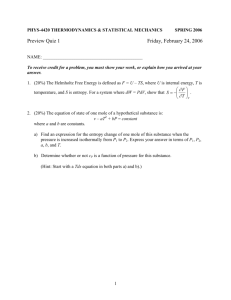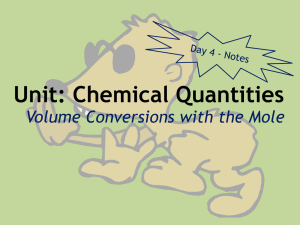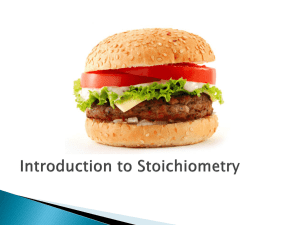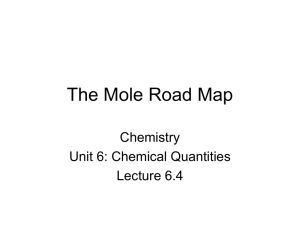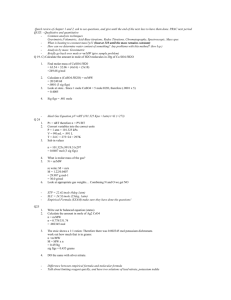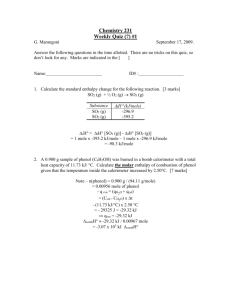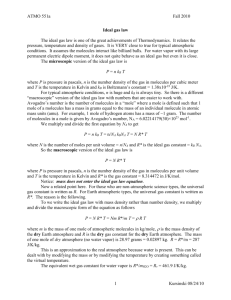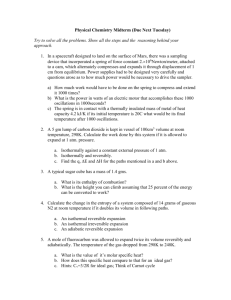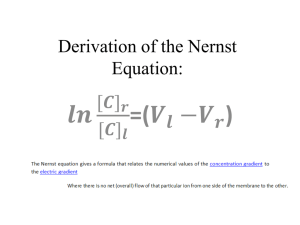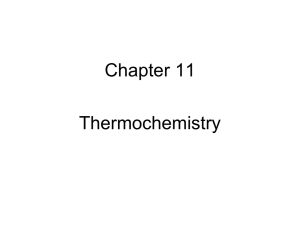Mole-Mass and Mole-Volume Relationships
advertisement
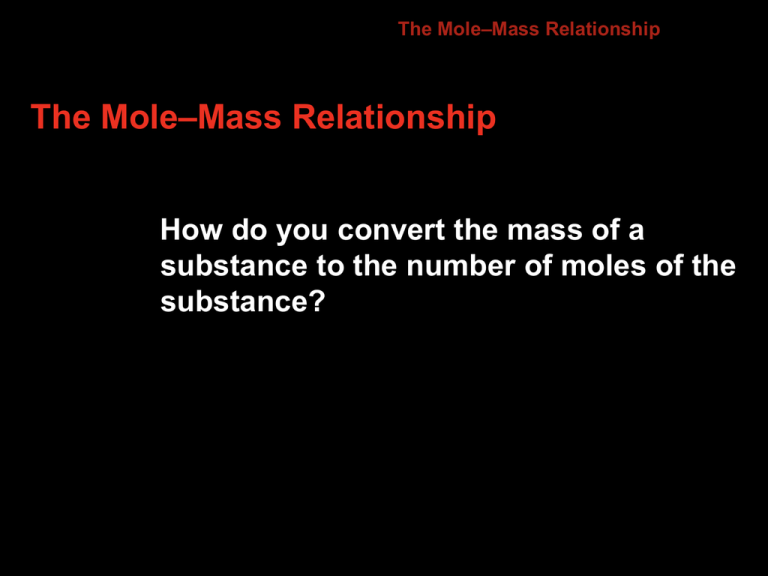
10.2 The Mole–Mass Relationship The Mole–Mass Relationship How do you convert the mass of a substance to the number of moles of the substance? 10.2 The Mole–Mass Relationship Use the molar mass of an element or compound to convert between the mass of a substance and the moles of a substance. 10.5 for Sample Problem 10.5 10.6 for Sample Problem 10.6 10.2 The Mole–Volume Relationship The Mole–Volume Relationship What is the volume of a gas at STP? 10.2 The Mole–Volume Relationship Avogadro’s hypothesis states that equal volumes of gases at the same temperature and pressure contain equal numbers of particles. 10.2 The Mole–Volume Relationship The volume of a gas varies with temperature and pressure. Because of these variations, the volume of a gas is usually measured at a standard temperature and pressure. Standard temperature and pressure (STP) means a temperature of 0°C and a pressure of 101.3 kPa, or 1 atmosphere (atm). 10.2 The Mole–Volume Relationship At STP, 1 mol or, 6.02 1023 representative particles, of any gas occupies a volume of 22.4 L. The quantity 22.4 L is called the molar volume of a gas. 10.2 The Mole–Volume Relationship Calculating Volume at STP 10.7 for Sample Problem 10.7 10.2 The Mole–Volume Relationship Calculating Molar Mass from Density 10.8 for Sample Problem 10.8 10.2 The Mole Road Map 10.2 The Mole Road Map 10.2 The Mole Road Map 10.2 The Mole Road Map The Mole Road Map 10.2 Section Quiz. 1. Calculate the mass in grams of a sample containing 1.85 x 1034 molecules of water. a. 3.07 x 1010 g b. 5.53 x 1011 g c. 188 g d. 8.46 x 103 g 10.2 Section Quiz. 2. Calculate the number of moles in a spoonful of table sugar (C12H22O11) having a mass of 10.5 g. a. 32.6 mol b. 3.59 103 mol c. 3.07 10–3 mol d. 1.85 1022 mol 10.2 Section Quiz. 3. What is the volume of 0.35 mol of oxygen gas at STP? a. 32 L b. 64 L c. 7.8 L d. 16 L END OF SHOW
